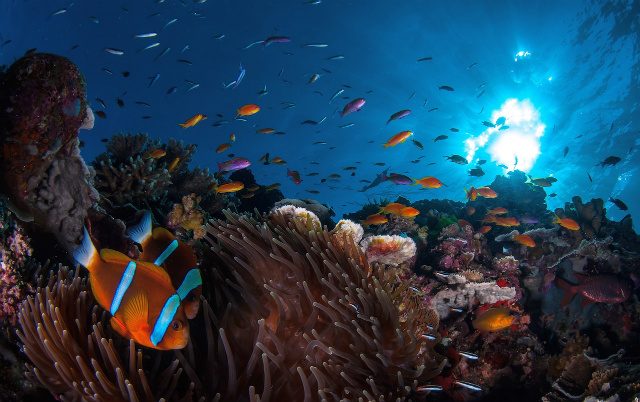SUMMARY
This is AI generated summarization, which may have errors. For context, always refer to the full article.

SYDNEY, Australia – All references to Australia were removed from a UN report on climate change and World Heritage sites after objections from Canberra, in a move scientists and activists Friday, May 27, called “extremely disturbing”.
The study, World Heritage and Tourism in a Changing Climate, was jointly published Thursday, May 26, by UNESCO, the Union of Concerned Scientists and the United Nations Environmental Programme.
It profiles the impacts of climate change on major tourism drawcards including the Statue of Liberty, Venice and Stonehenge, listing 31 vulnerable sites in 29 countries.
Initially it contained a chapter on Australia’s Great Barrier Reef, which is suffering its worst bleaching in recorded history, and sections on Kakadu National Park and the Tasmanian Wilderness, scientists said.
But when the Australian Department of Environment saw a draft, it objected and every mention of Australia was removed.
The department told Agence France-Presse it “indicated” to UNESCO that “it did not support any of Australia’s World Heritage properties being included” in the study.
“The department was concerned that the framing of the report confused two issues – the World Heritage status of the sites and risks arising from climate change and tourism,” it said in a statement.
“Recent experience in Australia had shown that negative commentary about the status of World Heritage properties impacted on tourism.”
The reef, which contributes an estimated Aus$6.0 billion (US$4.3 billion) annually to the economy, mainly through tourism, last year narrowly avoided being put on the World Heritage endangered list.
Will Steffen, one of the scientific reviewers of the axed section on the reef, said he was stunned.
“It beggars belief that Australia would not even rate a mention,” he said.
“To argue that this is about tourism doesn’t make much sense. No other country requested sections to be removed from the report.
“Information is the currency of democracy, and the idea that government officials would exert pressure to censor scientific information on our greatest natural treasure is extremely disturbing,” he added.
Greenpeace called it “jaw-dropping news”. (READ: Calls for climate action over Great Barrier Reef bleaching)
“Especially while the Great Barrier Reef is suffering from its worst-ever coral bleaching,” said Greenpeace Australia reef campaigner Shani Tager.
“They’re trying to pull wool over Australians’ eyes about serious threats to the future of our greatest natural wonder.”
The world’s biggest coral reef ecosystem is under pressure from not only climate change, but farming run-off, development and the coral-eating crown-of-thorns starfish.
Last month scientists warned large parts of it would be dead within 20 years if climate change was not tackled.
In introductory remarks to the study, UNESCO’s World Heritage Center director Mechtild Rossler said “globally, we need to better understand, monitor and address climate change threats to World Heritage sites”.
“As the report’s findings underscore, achieving the Paris Agreement’s goal of limiting global temperature rise to a level well below 2 degrees Celsius is vitally important to protecting our World Heritage for current and future generations.” – Rappler.com
Add a comment
How does this make you feel?
There are no comments yet. Add your comment to start the conversation.